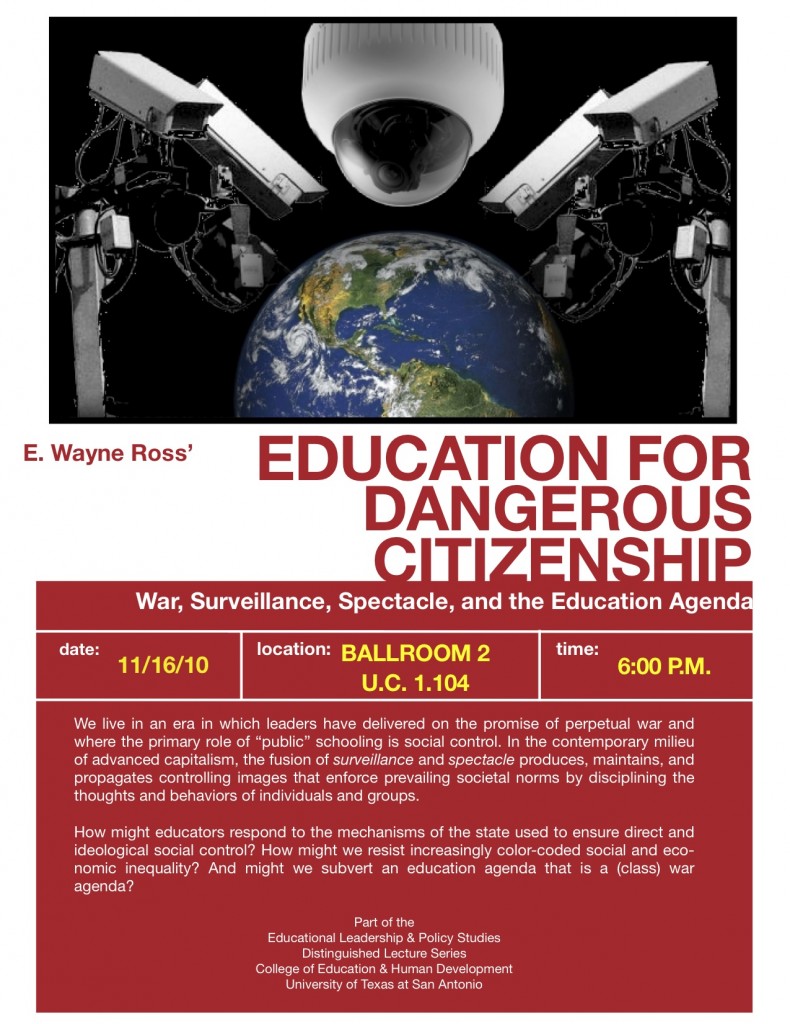In the wake of the recent Atlanta Public Schools test cheating scandal, Critical Education has just published a special report examining the performance of Atlanta students on the National Assessment of Educational Progress.
The report, written by Lawrence C. Stedman, an Associate Professor in the School of Education at the State University of New York at Binghamton and an expert on historical and contemporary student achievement trends, analyzes Atlanta students’ performance on the NAEP during the 2000s to assess the contention of former Superintendent Beverly L. Hall that students made “real and dramatic” progress during her tenure.
Critical Education
Vol 2, No 9 (2011)
Table of Contents
http://m1.cust.educ.ubc.ca/journal/index.php/criticaled/issue/view/30
Special Report
——–
A Preliminary Analysis of Atlanta’s Performance on the National Assessment of Educational Progress
Lawrence C. Stedman, State University of New York at Binghamton
Abstract
The Atlanta Public Schools system has been rocked by a series of reports documenting widespread cheating on the Georgia state tests. Its reputation, and that of its leaders, has come into question. In response, former superintendent Hall asserts that, despite any cheating, the city’s students made “real and dramatic” progress during her tenure and cites the district’s trends on NAEP as part of her evidence (Hall, 2011). In this report, I analyze Atlanta’s performance on NAEP during the 2000s to assess this contention. I use diverse indicators: district trends, national comparisons, grade equivalents, and percentages of students achieving proficiency. My preliminary assessment is that Atlanta’s progress has been limited and, in many cases, slowed. In spite of a decade of effort, Atlanta’s students still lag 1-2 years behind national averages and vast percentages do not even reach NAEP’s basic level. Less than a fourth of its 4th and 8th graders achieve proficiency, a key national goal; in some subjects and grades, it is as few as a tenth. At current rates, it will take from 50 to 110 years to bring all students to proficiency. Such findings raise profound questions about current approaches to school reform, including No Child Left Behind and Race to the Top. The emphasis on targets and testing is failing and has contributed to cheating across the nation. More fundamentally, it has greatly distorted teaching and undermined authentic learning. While test tampering is a serious problem, we need to re-conceptualize what we mean by cheating. Every day, test-driven, bureaucratically controlled institutions are cheating tens of millions of students out of a genuine education. That is the real scandal.
Editors’ Note
From time to time, Critical Education will publish time sensitive and topical field reports that analyze issues challenging the existing state of affairs in society, schools, and informal education. Our first field report is Lawrence C. Stedman’s analysis of student achievement in Atlanta Public Schools subsequent to the investigation that revealed widespread cheating on state tests. In spite of the findings of the investigation that cheating was widespread, then school superintendent Beverly Hall claimed schools had made significant real progress in student achievement. Stedman’s field report investigates this claim.
Cheating scandals in schools have become almost commonplace. Campbell’s Law is often invoked as the explanation: “The more any quantitative social indicator is used for social decision-making, the more subject it will be to corruption pressures and the more apt it will be to distort and corrupt the social processes it is intended to monitor.” No Child Left Behind has led American schools down a path seeking ever higher test scores, aspirations that are unreasonable and, based on the best judgment of measurement experts, unattainable. In spite of the unreasonableness and unattainability of the goals set by distant policy makers and capitalist corporate interests, educational professionals are pulled down this path and do what they can or what they are told to do to demonstrate improvement in learning. Anyone paying attention to the ever increasing importance of standardized testing as the main means of evaluating students, schools, teachers, and principals will understand how cheating could be come widespread. Indeed, the investigation of the cheating scandal in Atlanta revealed a culture of fear, intimidation, and retaliation, which created a conspiracy of silence among educational professionals fostering deniability with respect to cheating. That teachers and administrators cheat should come as little surprise when educational policy creates unreasonable demands and then holds those educators to account through threats and intimidation. Cheating of this kind is not about trying to hoodwink any one; it is entirely about seeking to avoid the wrath of a system that will assuredly blame teachers and administrators for perceived failure to perform. It is about gaming the system, not about harming children. We should be left wondering why we have an educational system that backs educators into a corner that leaves them with little choice but to engage in actions even they find unethical.
The public is outraged by cheating, especially in its obvious forms, like in Atlanta where teachers and school administrators altered student test results by changing wrong to correct answers. Most people would agree that changing answer sheets is cheating, even if there are good explanations for why it might be done. But there are softer, maybe even acceptable forms of cheating, ones that reasonable people would argue may or may not actually be cheating. Is it cheating when schools and districts manipulate the pool of test takers by excluding groups of students? Is it cheating when teachers are exhorted to focus on students who are on the cusp of moving to ‘proficient’ at the expense of time spent with other students, either those who are failing miserably or obviously succeeding? Is it cheating when instructional time becomes intensive test preparation? Is it cheating when the subjects that are tested push out subjects that are not tested?
What counts as cheating is contextual and necessarily dependent on our perception of who or what is being cheated. When teachers and administrators change answers it isn’t students who are cheated, it is the system. (Stedman’s analysis clearly demonstrates that whether the students’ answer sheets were changed or not, NAEP results show a school system in which children are not doing very well.) The response to this sort of cheating is ever increasing surveillance and policing of test administration and scoring. Increased monitoring is less likely to prevent cheating and more likely to alienate teachers, principals, and students. Whether answers are changed or not, students are cheated by the much larger context of test driven teaching that limits what they know and can do. It is the test driven educational reforms and simplistic notions of what a good school is that cheat students out of a quality education.
 Follow
Follow


